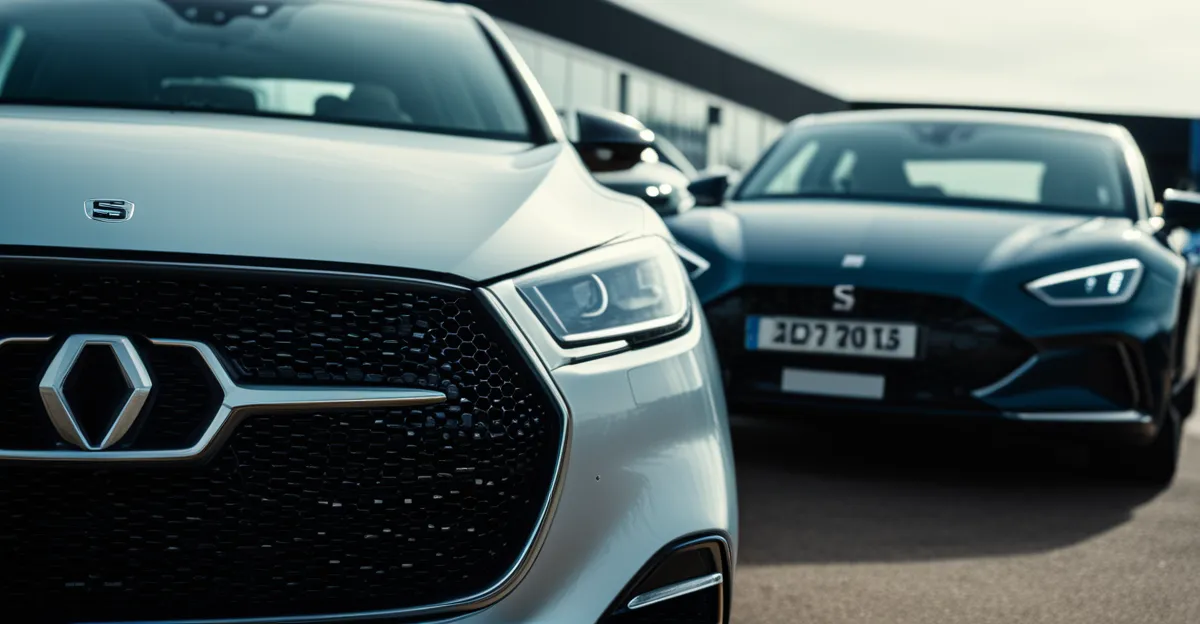Digital transformation reshaping car sales in the UK
Digital transformation is profoundly reshaping car sales in the UK, affecting every stage of the purchase journey. The UK automotive market has experienced a significant shift from traditional, in-person dealership interactions to more digitally driven processes. This transformation is not simply about moving sales online; it encompasses an entire overhaul of how customers discover, evaluate, and buy vehicles.
Technologies such as online configurators, virtual consultations, and automated finance applications have streamlined the sales process, making it faster and more convenient. The impact of digital transformation on car sales UK means dealers must adapt to new expectations, including around transparency and ease of access. Data analytics and customer relationship management (CRM) tools now allow dealerships to tailor their offerings and communications more precisely.
Also to read : What are the challenges of integrating AI in the UK automotive sector?
Currently, the UK automotive market sees a blend of hybrid sales models where digital tools enhance traditional sales channels. Emerging innovations like artificial intelligence and real-time inventory management are further boosting efficiency and personalization. As a result, the role of digital transformation in car sales UK is not only accelerating transactions but also redefining customer engagement and dealer competitiveness.
Growth of online car purchasing
Digital transformation has sparked a notable rise in online car buying UK, shifting traditional purchasing methods toward fully digital experiences. UK customers increasingly turn to e-commerce automotive platforms that enable the entire process—from browsing to financing—to occur online. This shift responds directly to the demand for convenience and time-saving solutions in car sales UK.
Also to discover : What are the trends in UK automotive design for the next decade?
Leading platforms specialize in providing end-to-end digital purchases, offering features such as virtual financing calculators, home delivery options, and online trade-in valuations. These services replicate and often improve upon traditional dealership interactions.
Recent data shows internet car sales are growing rapidly, capturing a larger market share compared to in-person transactions. For example, reports indicate a double-digit annual increase in online automotive sales, reflecting changing behaviours within the UK automotive market. This digital purchasing trend is fueled by consumers’ confidence in secure online payment and transparent pricing, which have lowered barriers to buying vehicles online.
Overall, the expansion of online car buying UK signals a long-term shift in how cars are sold, encouraging dealerships to integrate digital tools alongside physical outlets to meet evolving customer expectations.
Virtual showrooms and immersive buying experiences
Virtual showrooms have become a pivotal part of the UK automotive market, revolutionising how customers explore vehicle options. These platforms offer digital car browsing that transcends static images, allowing potential buyers to interact with 3D models from their devices. By integrating augmented reality automotive solutions, customers can visualise cars in their real environment, inspecting features and colours with impressive detail.
This immersive technology enriches the buyer journey, making it more engaging and informative. For example, augmented reality apps enable users to project a full-sized car onto their driveway, enhancing confidence before purchase. UK brands adopting these technologies report higher user engagement and better-informed customers, which can shorten sales cycles.
In practice, virtual showrooms provide several advantages:
- Convenient access anytime, anywhere
- Enhanced product understanding without dealership visits
- Opportunities to customise vehicles digitally in real time
These innovations complement traditional sales efforts, bridging the gap between online research and physical experience. As immersive buying experiences grow, the digital transformation of car sales UK continues to accelerate, reflecting evolving consumer expectations and technological possibilities.
Evolving digital marketing strategies for car dealerships
Effective digital marketing UK dealerships is reshaping how automotive advertising connects with potential buyers. Unlike traditional methods, dealers now rely on data-driven campaigns that precisely target audiences based on behaviour and preferences. This shift boosts online lead generation by delivering personalised content that resonates with specific segments of the UK automotive market.
Social media platforms and influencer partnerships play key roles in amplifying reach and engagement. Dealers use these channels not only for promotional activities but also to foster community trust and interaction. Content often highlights vehicle features, financing options, and dealership services tailored to audience interests.
Analysing the return on investment (ROI) of digital marketing reveals greater efficiency compared to conventional advertising. UK dealerships report increased lead quality and conversion rates, thanks to real-time tracking and optimised campaigns. This evolution supports the broader digital transformation across car sales UK by aligning marketing efforts with consumer expectations for transparency and convenience.
Overall, embracing innovative digital marketing strategies is essential for dealerships to remain competitive and connect effectively within the changing landscape of car sales UK.
Technology adoption by UK car dealerships
Digital transformation in the UK automotive market hinges on widespread adoption of advanced dealership technology. Leading dealers integrate UK automotive digital tools such as CRM systems, online vehicle configurators, and contactless transaction services to meet evolving consumer demands. These tools streamline workflows, improve lead management, and enhance personalisation by tracking customer preferences and purchase history accurately.
Showroom software now supports real-time inventory updates, enabling staff to offer precise information instantly, which reduces wait times and boosts customer satisfaction. Contactless services like digital paperwork and cashless payments cater to convenience and safety, aligning with current expectations.
Adopting these technologies also impacts dealership efficiency by reducing manual tasks and improving stock management, allowing more focus on customer engagement and tailored recommendations. Consequently, car sales UK benefit from a more seamless and responsive buying experience. This investment in digital solutions positions dealerships competitively, given the accelerating pace of digital transformation within the UK automotive market.
Impact on car sales volumes and business models
Digital transformation significantly influences UK car sales statistics, showing clear growth in sales volume driven by online channels and digital tools. Recent analyses reveal an uptick in transactions facilitated through digital platforms, indicating that the automotive business model is shifting from showroom-centric to omnichannel approaches. This evolution includes direct-to-consumer sales and subscription services, which offer consumers more flexibility and convenience.
Experts predict that this trend will continue, with business models increasingly focused on personalised experiences supported by data analytics and seamless integration of online and offline processes. Subscription services, for instance, cater to evolving preferences by providing short-term access without ownership commitments, attracting younger buyers in the UK automotive market.
Moreover, digital transformation enables dealerships to optimize inventory and pricing strategies based on real-time data, enhancing competitiveness and sales performance. Overall, these developments point to a future where traditional dealership roles are supplemented or replaced by technology-driven solutions, ensuring that car sales UK remain adaptive and responsive to consumer demands.











